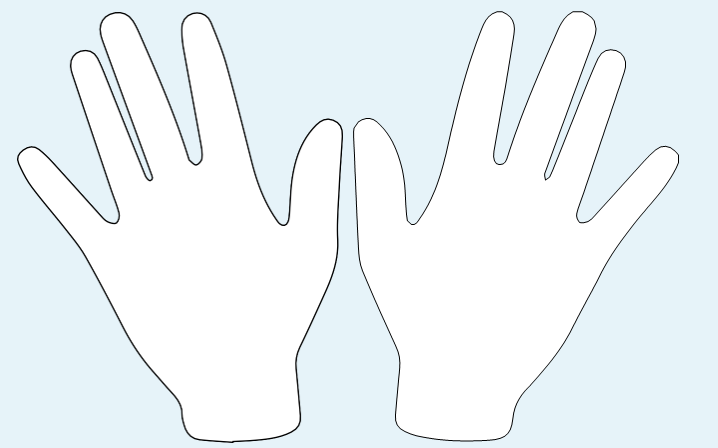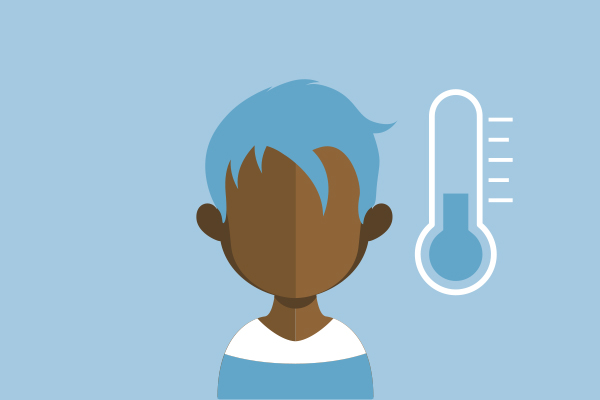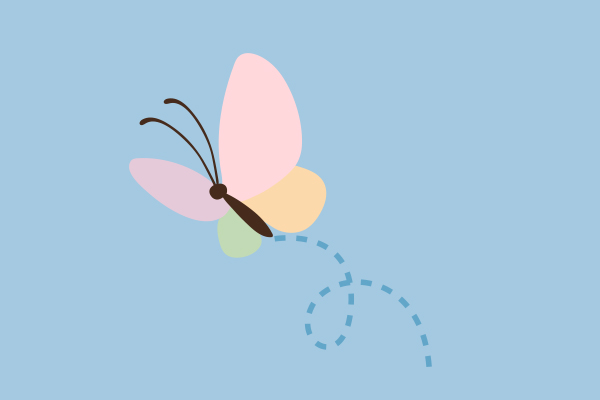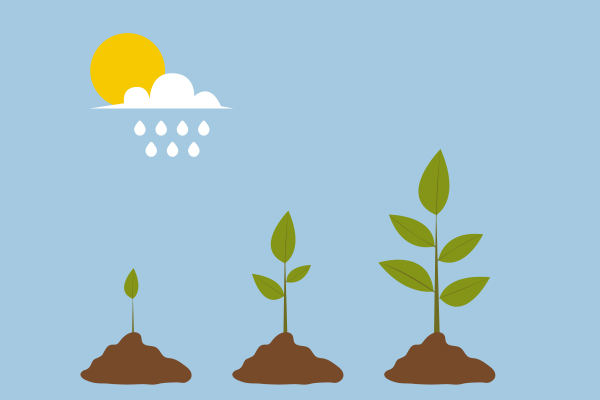This activity gives the school community the opportunity to reflect on the losses and deprivations of refugee children in order to find ways to mitigate them and give them back some of what they have lost.
The participants to:
- reflect on the degree of loss experienced by refugee children,
- reflect on the reasons for the deprivation experienced by refugee children,
- explore ways to give refugee children what they have been deprived of.
- identify and reflect on the extent of a refugee child’s loss and deprivation,
- reflect on ways in which they can individually and
- collectively contribute to improving the daily lives and well-being of refugee children.
Steps

- Each participant traces the outline of their two palms and then cut it out around the fingers on an A4 sheet as in the picture above.
- The trainer asks them to write on each finger a word that comes to mind when they hear the word “child”.
- In plenary, they read the words out loud, while the trainer writes them down on a flipchart paper or a whiteboard.
- The trainer asks the participants to think of the child refugee and to “cross out the fingers” with the words that do not fit or no longer apply. In plenary they show the “crossed fingers” and reflect on which words/conditions/ characteristics do not apply to refugee children.
- They discuss questions such as: What has changed for refugee children? Who is “breaking the fingers” and depriving refugee children of the words intended for other children? Are there things we can fix, individually or collectively? Which fingers could we re-attach?
Evaluation
Reflection circle in plenary: can we individually and collectively contribute to improving the lives of refugee children?

Duration: 30 minutes
Materials
- Α4 paper
- scissors
- flipchart paper or whiteboard.





